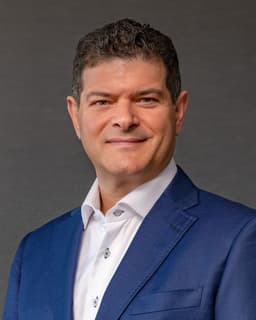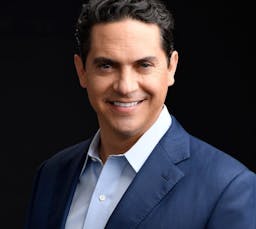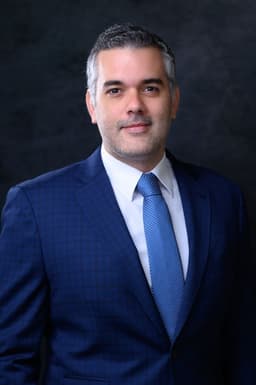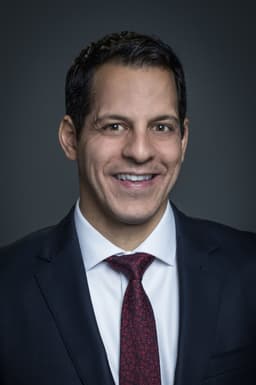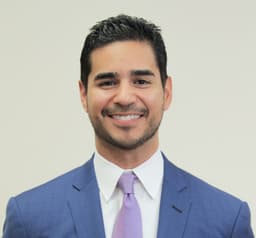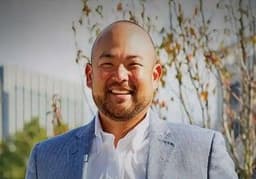Dan Ambrose
Trial Lawyers University
I grew up in Birmingham, MI. I am the youngest of eight children and attended an all-boys catholic school my whole life until I went to college at the University of Michigan. I went to night school at Detroit College of Law. My dad, my uncle, two of my brothers, and sister were lawyers. My first job was cutting lawns at age 10. I started working for my brother as a house painter at age 12. When I was 16 I started my own painting business and continued throughout high school, college, and law school, and a few years after until I was 32. I practiced criminal defense for eighteen years in Michigan until ten years ago when my roommate from the Trial Lawyers College, Nick Rowley, encouraged me to move to LA to become a PI lawyer. The California Bar took me four tries. I moved to Las Vegas this past March. I have recently taken up pickle ball, skiing and golf. I also think I'm competitive at connect four, backgammon, chess, and ping pong.
TLU Live HB Agenda
Track 1
Breakfast
7:30am - 9:30am
Hosted by
- 9:00a

 TLU ProfessorLecture Title Soon To Be Announced
TLU ProfessorLecture Title Soon To Be Announced Coffee & Snacks
Hosted by
- 10:15a

 TLU ProfessorLecture Title Soon To Be Announced
TLU ProfessorLecture Title Soon To Be Announced Coffee & Snacks
Hosted by
- 11:30a

 TLU ProfessorLecture Title Soon To Be Announced
TLU ProfessorLecture Title Soon To Be Announced Lunch
Sponsored by
- 2:00p

 TLU ProfessorLecture Title Soon To Be Announced
TLU ProfessorLecture Title Soon To Be Announced Coffee & Snacks
Hosted by
- 3:15p

 TLU ProfessorLecture Title Soon To Be Announced
TLU ProfessorLecture Title Soon To Be Announced Coffee & Snacks
Hosted by
- 4:30p

 TLU ProfessorLecture Title Soon To Be Announced
TLU ProfessorLecture Title Soon To Be Announced
Track 2
Breakfast
7:30am - 9:30am
Hosted by
- 9:00a

 TLU ProfessorLecture Title Soon To Be Announced
TLU ProfessorLecture Title Soon To Be Announced Coffee & Snacks
Hosted by
- 10:15a

 TLU ProfessorLecture Title Soon To Be Announced
TLU ProfessorLecture Title Soon To Be Announced Coffee & Snacks
Hosted by
- 11:30a

 TLU ProfessorLecture Title Soon To Be Announced
TLU ProfessorLecture Title Soon To Be Announced Lunch
Sponsored by
- 2:00p

 TLU ProfessorLecture Title Soon To Be Announced
TLU ProfessorLecture Title Soon To Be Announced Coffee & Snacks
Hosted by
- 3:15p

 TLU ProfessorLecture Title Soon To Be Announced
TLU ProfessorLecture Title Soon To Be Announced Coffee & Snacks
Hosted by
- 4:30p

 TLU ProfessorLecture Title Soon To Be Announced
TLU ProfessorLecture Title Soon To Be Announced
Track 3
Breakfast
7:30am - 9:30am
Hosted by
- 9:00a

 TLU ProfessorLecture Title Soon To Be Announced
TLU ProfessorLecture Title Soon To Be Announced Coffee & Snacks
Hosted by
- 10:15a

 TLU ProfessorLecture Title Soon To Be Announced
TLU ProfessorLecture Title Soon To Be Announced Coffee & Snacks
Hosted by
- 11:30a

 TLU ProfessorLecture Title Soon To Be Announced
TLU ProfessorLecture Title Soon To Be Announced Lunch
Sponsored by
- 2:00p

 TLU ProfessorLecture Title Soon To Be Announced
TLU ProfessorLecture Title Soon To Be Announced Coffee & Snacks
Hosted by
- 3:15p

 TLU ProfessorLecture Title Soon To Be Announced
TLU ProfessorLecture Title Soon To Be Announced Coffee & Snacks
Hosted by
- 4:30p

 TLU ProfessorLecture Title Soon To Be Announced
TLU ProfessorLecture Title Soon To Be Announced
Track 4
Breakfast
7:30am - 9:30am
Hosted by
- 9:00a

 TLU ProfessorLecture Title Soon To Be Announced
TLU ProfessorLecture Title Soon To Be Announced Coffee & Snacks
Hosted by
- 10:15a

 TLU ProfessorLecture Title Soon To Be Announced
TLU ProfessorLecture Title Soon To Be Announced Coffee & Snacks
Hosted by
- 11:30a

 TLU ProfessorLecture Title Soon To Be Announced
TLU ProfessorLecture Title Soon To Be Announced Lunch
Sponsored by
- 2:00p

 TLU ProfessorLecture Title Soon To Be Announced
TLU ProfessorLecture Title Soon To Be Announced Coffee & Snacks
Hosted by
- 3:15p

 TLU ProfessorLecture Title Soon To Be Announced
TLU ProfessorLecture Title Soon To Be Announced Coffee & Snacks
Hosted by
- 4:30p

 TLU ProfessorLecture Title Soon To Be Announced
TLU ProfessorLecture Title Soon To Be Announced






